#horza
Text

Yours truly needs to eat too, you know!
#ai#ai generated#fat#fat anime#fat girls#weight gain#sequence#before & after#horza#anime art#animation#ai art
2K notes
·
View notes
Text
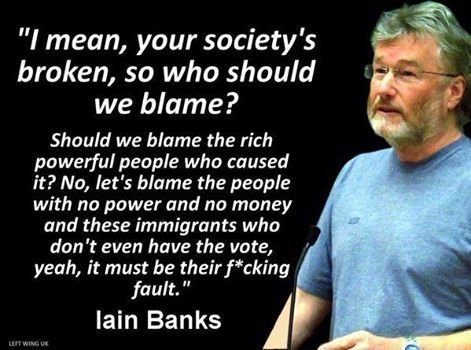
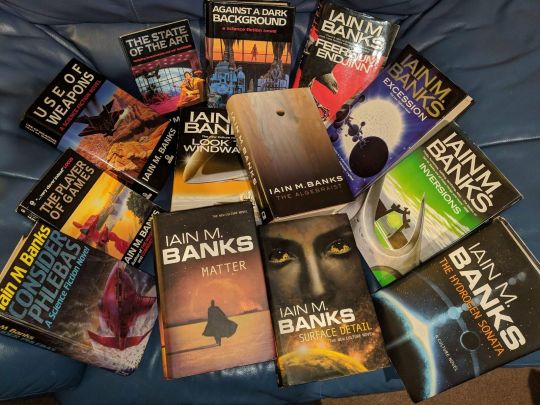
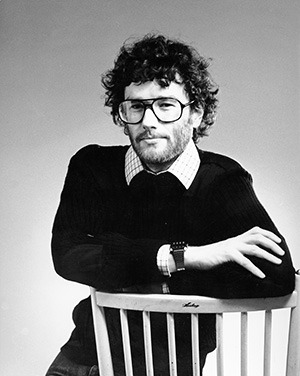
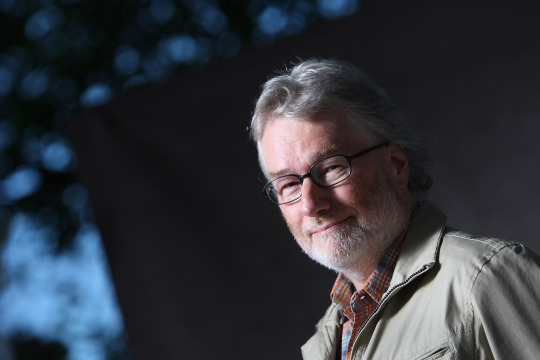
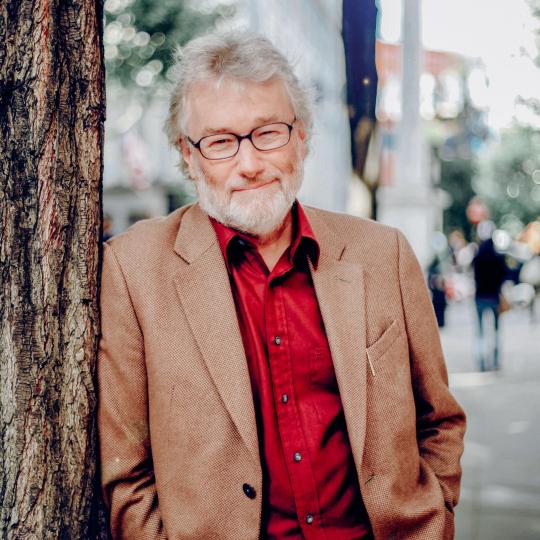
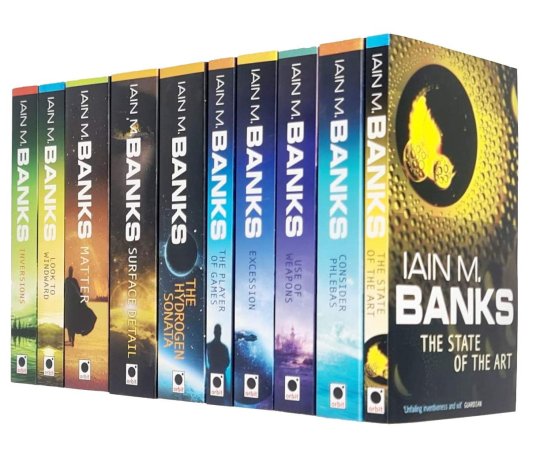
On February 16th 1954 the writer Iain Banks was born in Dunfermline, Fife
Banks was a son of a professional ice skater and an Admiralty officer. He spent his early years in North Queensferry and later moved to Gourock because of his father’s work requirement. He received his early education from Gourock and Greenock High Schools and at the young age of eleven, he decided to pursue a career in writing. He penned his first novel, titled The Hungarian Lift-Jet, in his adolescence. He was then enrolled at the University of Stirling where he studied English, philosophy and psychology. During his freshman year, he wrote his second novel, TTR.
Subsequent to attaining his bachelor degree, Banks worked a succession of jobs that allowed him some free time to write. The assortment of employments supported him financially throughout his twenties. He even managed to travel through Europe, North America and Scandinavia during which he was employed as an analyzer for IBM, a technician and a costing clerk in a London law firm. At the age of thirty he finally had his big break as he published his debut novel, The Wasp Factory, in 1984, henceforth he embraced full-time writing. It is considered to be one of the most inspiring teenage novels. The instant success of the book restored his confidence as a writer and that’s when he took up science fiction writing.
In 1987, he published his first sci-fi novel, Consider Phlebas which is a space opera. The title is inspired by one of the lines in T.S Eliot’s classic poem, The Waste Land. The novel is set in a fictional interstellar anarchist-socialist utopian society, named the Culture. The focus of the book is the ongoing war between Culture and Idiran Empire which the author manifests through the microcosm conflicts. The protagonist, Bora Horza Gobuchul, unlike other stereotypical heroes is portrayed as a morally ambiguous individual, who appeals to the readers. Additionally, the grand scenery and use of variety of literary devices add up to the extremely well reception of the book. Its sequel, The Player of Games, came out the very next year which paved way for other seven volumes in The Culture series.
Besides the Culture series, Banks wrote several stand-alone novels. Some of them were adapted for television, radio and theatre. BBC television adapted his novel, The Crow Road (1992), and BBC Radio 4 broadcasted Espedair Street. The literary influences on his works include Isaac Asimov, Dan Simmons, Arthur C. Clarke, and M. John Harrison. He was featured in a television documentary, The Strange Worlds of Iain Banks South Bank Show, which discussed his literary writings. In 2003, he published a non-fiction book, Raw Spirit, which is a travelogue of Scotland. Banks last novel, titled The Quarry, appeared posthumously. He also penned a collection of poetry but could not publish it in his lifetime. It is expected to be released in 2015. He was awarded multitude of titles and accolades in honour of his contribution to literature. Some of these accolades include British Science Fiction Association Award, Arthur C. Clarke Award, Locus Poll Award, Prometheus Award and Hugo Award.
Iain Banks was diagnosed with terminal cancer of the gallbladder and died at the age of 59 in the summer of 2013.
316 notes
·
View notes
Text
Nine People Tag!
Working through the last of my tag game mentions! I was tagged in this one by @starlitcrossroads, @sm-writes-chaos and @yesireadbooks, so thanks to them! All right, let's get this underway.
Last Song - Linger by The Cranberries
Last Movie - The Perks of Being a Wallflower (Yes, it was my twelfth rewatch. Comfort movies gotta comfort - it's been a rough couple of months.)
Currently Reading - Just finished Fangirl by Rainbow Rowell. I've been on a bit of a YA novel binge recently.
Last Thing I Searched For Writing Purposes - 'height of Jupiter-synchronous orbit.' For anyone wondering, it's 90,151 kilometers (56,029 miles)
Three Ships - I'll admit, I'm not much of a shipper, but eh, why not.
Robert Frobisher and Rufus Sixsmith from Cloud Atlas
Dean Thomas and Seamus Finnigan from Harry Potter
Horza and Yalson from Consider Phlebas
Currently Craving - a big plate of nachos with melted cheese, chili and salsa dip...
Currently Consuming - water.
Current Obsession - as previously mentioned, I rewatched Undergrads again recently, an animated college sitcom that aired on MTV in 2001, was hardly advertised, and developed a huge cult following in Canada through years of reuns on the Teletoon Channel. I could talk about it for hours, but I can't let myself, so I wont. :)
I won't tag anyone specific, so consider this an open invitation for anyone who'd like to take part!
5 notes
·
View notes
Text
what on earth is going on with this book. there's a weird pretty pointless diversion on Weird Cannibal Island with the most extended, overwrought anti-fat writing i've ever seen. like, the absolute obsession with degrading and dehumanizing this fat guy goes beyond anything i've ever read in fiction. also this whole cult makes no sense at all and i don't know what purpose it's supposed to serve in the larger narrative. considering the fact that the tone isn't even that shocking or edgy but the main character has nearly drowned in feces twice is making me wonder if the entire sci-fi premise is just a thin veneer over the author's weird fetishes
also another thing i found baffling was horza at the damage game, bribing his way into the Horny Zone, knowing it was the Horny Zone, decided he wasn't into horniness then left and tried to get his bribe back?? (a great move for when you're trying to stay casual and unnoticed) was there literally any purpose for that? is it just supposed to establish that horza's an ineffectual idiot? bc i already got that impression very clearly from the entire rest of the book
if this is one of britain's greatest authors y'all have to step up your game
4 notes
·
View notes
Text
Consider Phlebas
Consider Phlebas is the only Iain M Banks work I’ve read and I’m pretty disappointed. Where are the challenging ideas? The quandaries only made plausible by technological or scientific breakthroughs, counterfactuals, or contact with beings we can’t currently interact with?
In Consider Phlebas, they are crammed into a few paragraphs at the end of the book, in an appendix: (1) what role should humans play in a society where all material needs are trivially met, where major challenges like climate change and renewable energy have been solved? And (2) is it good or bad for an advanced society to bludgeon or nudge less advanced cultures along towards Progress.
Initially, at 4am in a stupor, I found the clear presentation of these questions in the final pages so jarring that I was certain I had not been paying attention while reading. But no, after letting it sit for a day, skimming through the book again, asking a couple online acquaintances if I was missing something, and even reading the plot synopsis on Wikipedia I couldn’t find them.
—————————————————————————
I didn’t know the reference the title was making until after finishing the book and so was not prepared for such a nihilistic presentation of the world — 851 billion deaths in the “small, short war” being insignificant in the course of history, Horza witnessing the macabre of The Eaters to no purpose (if this chapter were omitted entirely, would anything else about the novel have to change?), all of the female characters dying with no impact on the lives or mindset of the other characters.
I’m sympathetic to the idea that none of this matters. We do what we want to and die and in the course of history nobody will remember the small role we played. But nobody actually lives that way and I find the idea entirely boring to read about.
—————————————————————————
Some other, more minor things, didn’t do it for me either:
“Bora Horza” is a crappy name (unless there’s a pun I’ve missed).
Fal ’Ngeestra’s description of her love of the mountains felt like it was written by someone who hasn’t spent much time in the mountains.
Adverbs like “Horza said reasonably” snapped me out of the scenes where they popped up.
Women putting their hands on their hips and stamping their feet in arguments made me roll my eyes.
This felt like a collection of short stories that didn’t really have much to do with one another (which would be fine if this were a collection of short stories, but it’s supposed to be a novel). This isn’t my favorite style of worldbuilding.
more than once I found myself thinking “this is a mashup of Alien and Hitchhiker’s Guide to the Galaxy, but doesn’t have the magic of either”. The suspense and humor didn’t land for me — I care more for Jones the cat than any of Banks’ characters, and “much the same way that bricks don’t” is funnier than any line here.
(Review written 6 Jan 2024.)
[Originally on Goodreads]
0 notes
Text
She shrugged.
"Unarmed, you killed an Idiran in full battle armour and toting a laser?" Horza said sceptically. Balveda shrugged again.
"Horza, I didn't say it was easy."
1 note
·
View note
Text
From Local Fare to International Flavors: Bugibba's Diverse Dining Scene

Bugibba, nestled on the northern coast of Malta, is not only a picturesque seaside destination but also a culinary hub offering a diverse array of dining experiences. From traditional Maltese fare to international cuisines Best Restaurants in Bugibba Malta, Bugibba's dining scene caters to every palate and preference. In this article, we'll take a closer look at the vibrant culinary landscape of Bugibba, where local flavors meet global influences to create a truly eclectic dining experience.
Embracing Tradition:
Bugibba's dining scene is deeply rooted in Maltese culinary traditions, with many restaurants offering a taste of local fare that reflects the island's rich cultural heritage. From rabbit stew to pastizzi (flaky pastries filled with ricotta or mushy peas), establishments like Il-Bukkett Restaurant and Il-Horza Restaurant serve up classic Maltese dishes with a modern twist. These eateries provide an opportunity for visitors to immerse themselves in the flavors of Malta, experiencing the unique blend of Mediterranean and North African influences that define Maltese cuisine.
Mediterranean Marvels:
Given Bugibba's proximity to the Mediterranean Sea, it's no surprise that seafood features prominently on many menus. Restaurants like Porto Vecchio and Tal-Kaptan Restaurant specialize in fresh seafood dishes, showcasing the bounty of the sea with grilled fish, seafood pasta, and seafood platters. These establishments offer diners the chance to savor the flavors of the Mediterranean in a relaxed seaside setting, with stunning views of the azure waters serving as the perfect backdrop for a memorable meal.
International Flair:
Bugibba's dining scene also embraces international cuisines, catering to the diverse tastes of its residents and visitors. Whether you're craving Italian pasta, Indian curry, or American burgers, you'll find it all in Bugibba. Restaurants like Venus Restaurant & Pizzeria and Ristorante San Giuliano serve up authentic Italian dishes, while Spice Hut offers a tantalizing selection of Indian curries and tandoori specialties. For those in search of American-style comfort food, places like Fat Harry's Pub and New York Best offer hearty burgers, ribs, and fries. Bugibba truly offers a world of flavors for diners to explore.
Fusion Fare:
In addition to traditional and international cuisines, Bugibba's dining scene also boasts restaurants that specialize in fusion cuisine, blending flavors and techniques from different culinary traditions to create innovative and exciting dishes. Caviar & Bull Restaurant is a prime example, offering a fusion of Mediterranean and international flavors in dishes like sushi rolls with a Maltese twist and lobster carpaccio with Asian-inspired marinades. These restaurants provide diners with a unique and unforgettable dining experience, where every bite is a delicious journey of flavors and textures.
Casual Eateries and Fine Dining:
Whether you're looking for a quick bite or a leisurely gourmet meal, Bugibba has options to suit every dining style and budget. Casual eateries like Venus Restaurant & Pizzeria and Il-Horza Restaurant offer affordable and delicious meals in a relaxed atmosphere, perfect for families and groups. For those seeking a more upscale experience, fine dining establishments like Caviar & Bull Restaurant and Ristorante San Giuliano provide an elegant setting and impeccable service to complement their gourmet cuisine. Bugibba truly offers something for everyone, making it a must-visit destination for food lovers from near and far.
In conclusion, Bugibba's diverse dining scene is a testament to the town's culinary creativity and cultural richness. From traditional Maltese fare to international flavors and fusion cuisine, Bugibba offers a culinary journey that delights the senses and satisfies every craving. Whether you're a local resident or a visitor to Malta, exploring Bugibba's restaurants is sure to be a delicious and memorable experience.
0 notes
Text

(Trigger Warnings: Mentions of self harm, cannibalism, violence, gore, torture, eating compulsion, medical malpractice)
Worldbuild Lore: Slaughter Tribe
Brutal, bloodthirsty, and insensitive: the best words to describe the Slaughter Tribe. Led by the primitive instinct of violence and hunger, these monsters were the grand atrocity of Sauron's army, feeding the troops with the flesh of the attacked peoples and of slaves alike. Wearing aprons and gloves of human skin, stained with blood as red as ruby, they swing their cleavers back and forth, inspiring fear into the enemies of Sauron.
The slaughters were often forming both the maintenance crew of the armies and battalions of merciless warriors, for their expertise in preparing meat for safe consumption and their craving for gore made them into soldier of multiple skills. Sometimes, their skills were so diverse, they could even act as torturers beside the terrors. Such skillset is their main source of pride.
Their personalities are a viewed as an extreme of the uruk worldview: violence and killing is all that there is to be sought after, as well as the blood and viscera of your opponents. As if no instinct of preservation of the species or preservation of the self existed, they go on slaughtering, sometimes even reaching the point of self mutilation, all to sate the hunger for blood. Overindulgence in eating is also another notable characteristic amongst the tribe members, with many even becoming above weight despite constantly moving and battling as well as indulging in occasional cannibalism. Some theorize that this is caused by the stress and anxiety of war, as a form of coping mechanism, but nothing was confirmed yet. Yet, Slaughter Tribe members seem to possess a certain desire to nurture others, and blood brotherhoods are common as well as parenting and mentoring.
They reside in the burgh of Bolgband, a rather open space compared to other burghs, crowded by street vendors, butcherhouses and taverns. The smell of blood and food is ever present as well as the thousands of stands of metal and stone, covered with canopies of hide or cloth. The walls of wood and brick are a proof of their confidence: "the walls do not have to hold back any, for they cannot hide or escape from us" is the phrase that explains their architecture. Many cooking guilds are located there, with many paying as much as possible just to learn the secrets to butchering anything from fishes to large prey, although some talented ones are given free or discounted courses. This burgh is known as the main food supplier, attending to the demands of the entire Haven, but even so, the orcs also seek this area for the cheaper infirmaries, though these establishments offer little to no quality. Food processing mills are also mainly located there as well as grog breweries.
Despite all of the notorious reputation as killers and cannibals, there is still generosity found within their hearts, for they often donate or serve food to newcomers, orphans, widows, and those grieving, without any return expected. Some wanderers even receive the kindness of a warm corner to rest in on their kitchens, which leads to slaughters often adopting them as apprentices.
Hierarchy:
-Overlord: Lorm Bloodshed (current royal welfare advisor and administrator)
-Warchiefs: Horza The Knife Master, Snafû The Hungry, Ratanák Amputator, Ogbur The Glutton, Pígug The Feast Lover, Latbag The Skewer
-Captains: approximately 150 of them, with Goreth Butcher of Beasts as their main representative
Brand: A pair of cleavers, representing both their favorite weapon and their main profession as butchers and cooks for the army
Societal Relationships:
-Machine Tribe: Their favorite tribe as the slaughters claim, for the machines offer them free or discounted repairs for their weapons, blades, stoves and ovens; often, slaughters stand in support of machines and offer them free oil for the fire and food
-Warmonger Tribe: Highly favored because the slaughters wisely offer discounted pricing for their goods to the warmongers in exchange of favors; warmongers are often seen acting as guardians of butcherhouses of the slaughters as a free favor; slaughters often offer free advice on how to find weak spots in foes during fights to the warmongers
-Terror Tribe: Highly favored because the slaughters wisely offer discounted pricing for their goods to the law enforcers in exchange of favors; terrors are often seen acting as guardians of butcherhouses of the slaughters as a free favor as well as punishers for those who cross the slaughters; slaughters also offer great advice about torturing, corpses, physiology and anatomy to the terrors for free as a token of friendship
-Feral Tribe: The ferals are their main source of animals to be butchered besides the Rover Tribe, thus they never deny service or favors to them; the ferals sometimes hold resentment for the cruel jokes about roasting their mascot beasts at times
-Outlaw Tribe: Sometimes this tribe is loved for their improvised repairs made on the tools of the slaughters for free, earning them free meals in turn, but many times they earn the fury of slaughters for occasional robbery of food
-Mystic Tribe: Despite the mystics being common clients thanks to their expertise in extracting and preparing animal ingredients for potions, and despite neither tribe feeling squeamish over the dead, the slaughters still consider necromancy to be distasteful for it is "to play with food" in their opinion
-Courtesan Tribe: A tribe notorious for remaining always on their good side, the courtesans often team up with slaughters to earn income through feasts and celebrations, but some vatkeepers and broodmothers are afraid of the butchers one day choosing to cook their beloved children
-Suture Tribe: The two tribes clash often due to the competition in the healing business, with the sutures accusing the slaughters of being awful healers while the latter accuse the first to charge abusive prices
-Marauder Tribe: The best patrons, simply due to the many feasts that marauders hold just to boast about their fortune
-Dark Tribe: Neutral relations though the slaughters pay the darks to spy on the sutures for them
-Rover Tribe: Their other main source of ingredients, the slaughters do their best to please this tribe for the sake of scoring the best deals on spice and animal trades, even to the point of offering free warmth, shelter and food, bribing terrors to leave the rovers alone and mating or having blood brotherhoods with the Rover Tribe members
-Other orcs (goblins, hobgoblins, etc): Thes orcs are often welcomed and adopted into the Slaughter Tribe, but plenty of them still doubt the kind intentions of the slaughters, terrified of becoming their next meal
-Pinkskins (humans, half-elves and half-orcs): Pretty much the same case as the orcs, though the pinkskins have reasons to fear: not too long ago they were the main butcherhouse option, and many were kept as slaves just to be fattened and eaten
Foreigners (The Free Folks as a whole): The Slaughter tribe is fully aware of how the others would treat them: a quick sword to slay them all or perhaps public executions, but never an ounce of mercy for their acts of man-eating during the war, so they remain safely inside the Haven at all times
1 note
·
View note
Text
Consider Phlébas, par Ian M. Banks (Macmillan, avril 1987)
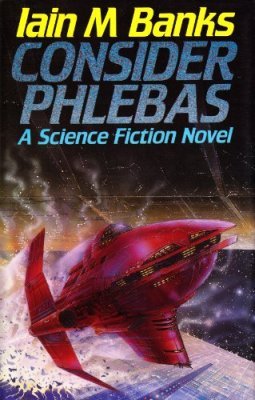
Classique en VO.
Je n’avais pas relu ce roman depuis sa parution en français en 1993 (« Une forme de guerre » Robert Laffont AD) et les aventures de Bora Horza Gobuchul dans sa quête pour mettre la main sur le « Mind » caché sur « Schar’s World » n’ont pas pris une ride.
La vérité oblige à constater que le roman souffre de nombreux défauts mineurs, notamment dans les passages introspectifs et lorsque l’action devient très complexe, mais la richesse du contexte, la profondeur des protagonistes et la succession de morceaux de bravoures emportent tout sur leur passage. De plus, il y a un plaisir supplémentaire pour le lecteur qui a déjà lu tous les romans de « The Culture » ! Force est de constater que tout ce qui sera développé ultérieurement est déjà là, même si c’est souvent seulement en germe.
Pour le titre, il est inspiré d’un poème de T.S. Eliot (ici) mais le rapport avec l’ouvrage reste assez cryptique, même si l’on intuite que Balveda, face à son succès et donc à l’échec de Horza, si elle avait connu par cœur les derniers vers du poème aurait pu y penser en guise d’épitaphe au « Changer ». Sinon, comme souvent, la plus grande partie du texte est nettement plus tonique en anglais qu’en français.
0 notes
Text
How Pushkrimp and Horza First Met
They are my OCs and a new favourite couple between me and @space-arsonist. I love them so much 🥺
Warnings: Slavery, Living Sacrifice, Typical Uruk Violence
It was no secret as to why he was purchased from his previous master. Horza struggled to understand what the black-clad uruks were speaking about, but he really didn’t need to in order to know what was about to happen to him.
He was small in his cage, but an orc couldn’t possibly be big when uruks were involved. His body was still chilled from the icy bath that his new masters had given him the moment he was dragged into their little coven. It was hostile but quick and they didn’t linger on his body any longer than they had to. If he wasn’t due to be sacrificed, Horza could have been overjoyed about being clean for the first time in years, perhaps even happier that a robe had been thrown over his head, as ill fitting as it was. But he couldn’t feel anything, not even terror or revulsion that he was about to be sacrificed in the name of their Dark Lord. He felt nothing.
Nothing…
Already, the thin white linens that he wore were covered in dirt. Horza stared at his knees and rested his cheeks against them. His wrists were sore from the chains he wore daily, even though the Mystics had removed them before he was shoved into his new cage. He didn’t want to listen but his ears picked up on what they were saying. Their dialect was nearly incomprehensible but he could manage a few words even though he was hardly paying attention to begin with.
“...something, something Dark Lord.”
“...something, something hunting- no, killing-”
“....something about food or being hungry-”
It all blurred into white noise. Horza buried his bruised face into his knees, thankful that he had at least a small amount of his once bountiful hair left. It provided him the comfort of hiding his crying face… He knew he was pathetic but a part of him didn’t want the uruks to see his sorrow or fear, even if it was futile. Maybe he should put up one last fight just so he could die a true orc’s death. Maybe he’ll just let it happen though… Horza was tired and knew long ago that his life was forfeit. It was from the day his village was razed and he was captured and sold into slavery. If he could just manage one more slight against them-
There was a commotion on the other side of the coven that pulled Horza out of his fantasy. Someone was shouting, which led to others shouting, though what really got his attention was the caragors that ran past his cage. His heart skipped a beat. Wild beasts? No, that’s not it. These beasts were starved and mangy… caragors take much better care of themselves out in the wild. One caragor skidded to a halt as it passed the orc and turned to sniff in his direction. Horza immediately threw himself to the ground and froze. If the beast decides that he’s worth it, there’s nothing that will stop it… A flimsy cage will do nothing to stop a starving caragor, but the beast's own survival instincts did. It ran off in the same direction of the other two that had passed Horza moments ago.
Shouting continued, though it was joined by something akin to a roar. Horza was shocked and didn’t move from his prone position on the ground. What is this?! A raid?! He feared the unknown and he feared changing hands to new masters again, regardless of the fact that he would die either way should the Mystics have their way with him.
It can always be worse… It can always be worse-
Horza again became numb to his surroundings. He could hear shouting, no, screaming, and the crackle and brightness of a fire that was spreading through the coven. He closed his eyes reflexively in response to the bright light, but quickly reopened them when he heard a strangled cry and the thud of a body hitting the ground. A spear was lodged in his back and in spite of his dark clothing, Horza could clearly see a dark patch of blood spreading underneath the cloth. That weapon was longer than Horza was tall… The Mystic was dead before he hit the ground, something vital was hit, his heart or a lung. Horza’s stomach twisted into knots.
He still isn’t used to it… How can a slave not be used to the sight and stench of death? His heart stuttered in his chest when the spear’s owner approached to reclaim his spear.
Though he was flat on the ground, Horza was sure that this was the tallest uruk he’s ever seen. He was taller than the cage he was imprisoned in, as was the shield he wore on his left arm. With one foot on the Mystic’s back, he removed the weapon with little effort. He flicked his wrist and wet blood shocked Horza’s face. He jumped and gasped, which got the attention of the uruk that was only a few feet away from him. No. No, no-!
His eyes were as intense as the fires that engulfed the Mystic coven. Horza shrank even further, whimpering softly as his eyes narrowed. For a brief moment, Horza could swear he saw the uruk’s brows falter, but as quickly as he noticed, his face was stone again and he couldn’t gauge what he was feeling. Disgust? He hoped it wasn’t anger… Another uruk, one similar in dress to him, asked in the common tongue-
“Are we takin’ prisoners?” The other uruk’s gaze drifted over to Horza then snapped back to the bigger uruk. He scoffed and bared his teeth. He barked something that Horza couldn’t understand, seeming almost offended by his subordinate’s question. And when the other uruk nodded towards him-
“‘im too?” His stomach dropped. The intense uruk looked him over then grabbed a hold of the cage door, ripping it off its worn and rusted hinges with such little difficulty that Horza nearly fainted.
Whatever he said, he said it over his shoulder as he walked away. The other uruk shrugged and walked towards Horza. The orc instinctively tensed and held his breath as the back of his collar was grabbed and he was forced to his feet. He was all but dragged through the coven and he held witness to the horrors that the raiders had inflicted onto the Mystics in the minutes their ambush had taken place.
Slaughtered, butchered, tongues removed and throats slit… Perhaps it was a mockery of the ritual that would have taken place with him in their place. Horza felt himself fading fast and he had to look away, gulping down the bile that threatened to surge up from his empty stomach. He was picked up, again by his collar, and dragged towards a group of saddled caragor. There was one uruk standing there, looking annoyed and bored. Horza was practically thrown at him and he fell onto the ground and remained there out of fear.
“‘ere, boss said this ‘un’s going with us.” The other uruk curled his lip.
“Eh? Why?” He looked down at Horza with disgust. The uruk that threw him shrugged.
“Dunno. Wanna be the one to ask him?”
He shook his head ‘hell no’.
#middle earth shadow of war#shadow of war#my ocs#uruk ocs#orc slavery#graphic depictions of violence#Horza is terrified#Pushkrimp is a rabid starved beast#The Mystics didn't stand a chance#there's a lot of bad blood between Pushkrimp and the Mystics#Pushkrimp the Raid Leader? More like Pushkrimp the Merciless
6 notes
·
View notes
Text
'Don't you have a religion?' Dorolow asked Horza.
'Yes,' he replied, not taking his eyes away from the screen on the wall above the end of the main mess-room table. 'My survival.'
'So... your religion dies with you. How sad,' Dorolow said, looking back from Horza to the screen. The Changer let the remark pass.
The exchange had started when Dorolow, struck by the beauty of the great Orbital, expressed the belief that even though it was a work of base creatures, no better than humans, it was still a triumphant testimony to the power of God, as God had made Man, and all other souled creatures. Horza had disagreed, genuinely annoyed that the womn could use even something so obviously a testament to the power of intelligence and hard work as an argument for her own system of irrational belief.
Yalson, who was sitting beside Horza at the table, and whose foot was gently rubbing the Changer's ankle, put her elbows on the plastic surface beside the plates and beakers. 'And they're going to blow it away in four days' time. What a fucking waste.'
~Iain M. Banks [buy]
0 notes
Text
"Yalson seemed to be the only normal female on board, but Horza found it difficult to think of her as a woman at all."
oh brother
#normal female.......#also he finds it difficult to think of her as a woman bc he...likes her as a person? lmao#please let this not be a continuing theme with all these books#consider phlebas
0 notes
Text
My Top Ten Video Game Highlights from E3 2021
My Top Ten Video Game Highlights from E3 2021
I know this is incredibly, credibly late. But I’ve been busy… and lacking in motivation… I still wanted to talk about E3 in some capacity this year. Or whatever it was that passed for the “Electronic Entertainment Experience” that happened exclusively online in 2021.
I’m not as “on the pulse” with game development as I used to be, I’m hardly managing to find time/money to play the games I want…

View On WordPress
#343 studios#arkane studios#Atomic Heart#Back 4 Blood#borderlands#e3#e3 2021#forza#game pass#gearbox software#Get it Together#halo#Halo: Infinite#Horza Horizon 5#metroid#Metroid Dread#microsoft#Monomi Park#Mundfish#nintendo#Redfall#Replaced#Sad Cat Studios#samus aran#slime rancher 2#Tiny Tina&039;s Wonderlands#Turn 10 Studios#Turtle Rock Studios#WarioWare#xbox
0 notes
Photo



On February 16th 1954 the writer Iain Banks was born in Dunfermline, Fife
.
Banks was a son of a professional ice skater and an Admiralty officer. He spent his early years in North Queensferry and later moved to Gourock because of his father’s work requirement. He received his early education from Gourock and Greenock High Schools and at the young age of eleven, he decided to pursue a career in writing. He penned his first novel, titled The Hungarian Lift-Jet, in his adolescence. He was then enrolled at the University of Stirling where he studied English, philosophy and psychology. During his freshman year, he wrote his second novel, TTR.
Subsequent to attaining his bachelor degree, Banks worked a succession of jobs that allowed him some free time to write. The assortment of employments supported him financially throughout his twenties. He even managed to travel through Europe, North America and Scandinavia during which he was employed as an analyzer for IBM, a technician and a costing clerk in a London law firm. At the age of thirty he finally had his big break as he published his debut novel, The Wasp Factory, in 1984, henceforth he embraced full-time writing. It is considered to be one of the most inspiring teenage novels. The instant success of the book restored his confidence as a writer and that’s when he took up science fiction writing.
In 1987, he published his first sci-fi novel, Consider Phlebas which is a space opera. The title is inspired by one of the lines in T.S Eliot’s classic poem, The Waste Land. The novel is set in a fictional interstellar anarchist-socialist utopian society, named the Culture. The focus of the book is the ongoing war between Culture and Idiran Empire which the author manifests through the microcosm conflicts. The protagonist, Bora Horza Gobuchul, unlike other stereotypical heroes is portrayed as a morally ambiguous individual, who appeals to the readers. Additionally, the grand scenery and use of variety of literary devices add up to the extremely well reception of the book. Its sequel, The Player of Games, came out the very next year which paved way for other seven volumes in The Culture series.
Besides the Culture series, Banks wrote several stand-alone novels. Some of them were adapted for television, radio and theatre. BBC television adapted his novel, The Crow Road (1992), and BBC Radio 4 broadcasted Espedair Street. The literary influences on his works include Isaac Asimov, Dan Simmons, Arthur C. Clarke, and M. John Harrison. He was featured in a television documentary, The Strange Worlds of Iain Banks South Bank Show, which discussed his literary writings. In 2003, he published a non-fiction book, Raw Spirit, which is a travelogue of Scotland. Banks last novel, titled The Quarry, appeared posthumously. He also penned a collection of poetry but could not publish it in his lifetime. It is expected to be released in 2015. He was awarded multitude of titles and accolades in honour of his contribution to literature. Some of these accolades include British Science Fiction Association Award, Arthur C. Clarke Award, Locus Poll Award, Prometheus Award and Hugo Award.
Iain Banks was diagnosed with terminal cancer of the gallbladder and died at the age of 59 in the summer of 2013.
59 notes
·
View notes
Text
As long as I’m dropping SF lit takes, here’s one:
The only conservative character in SF who is both believable (i.e. not a caricature) and sympathetic is Bora Horza Gorbuchul.
82 notes
·
View notes